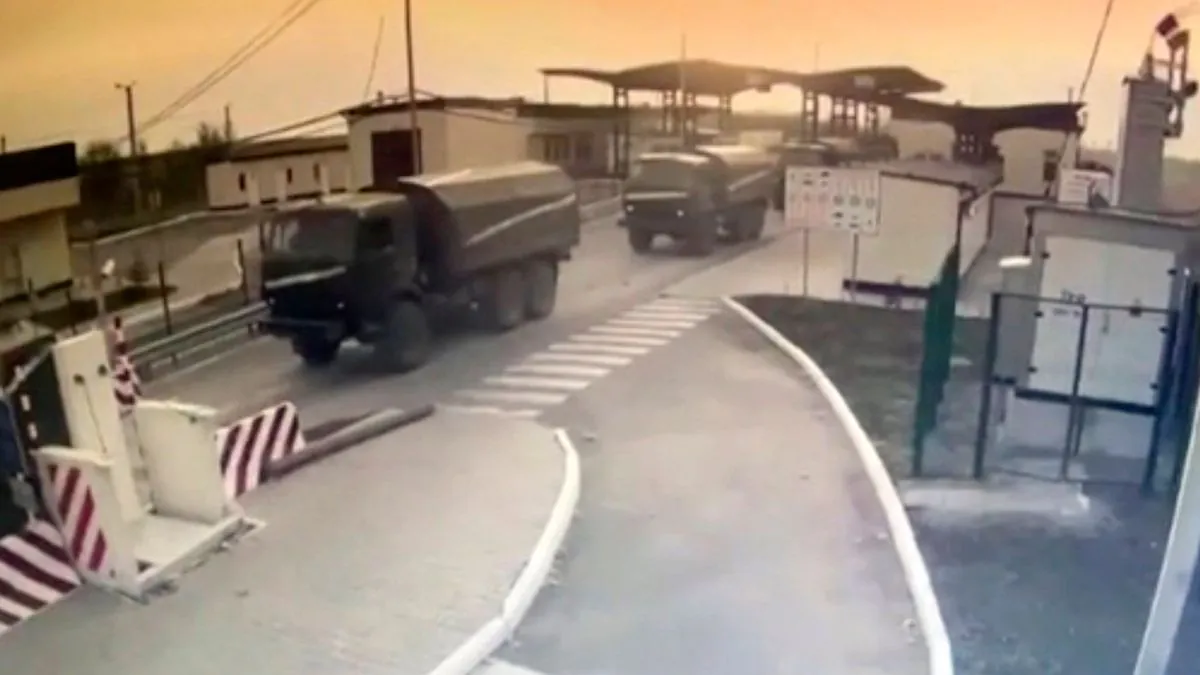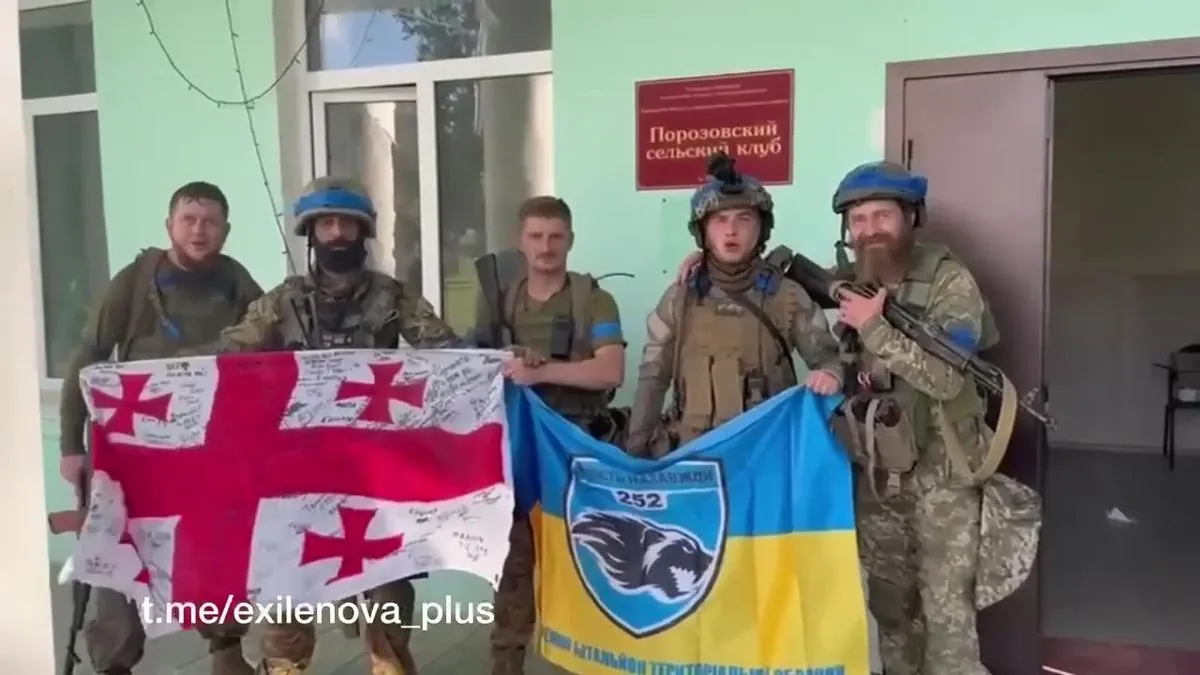Ukraine's Bold Move: Forces Push into Russian Territory
Ukrainian troops advance into Russia's Kursk and Belgorod regions, marking a significant shift in the ongoing conflict. Moscow responds with a "counterterrorism operation" as tensions escalate.

In a surprising turn of events, Ukrainian forces have launched a cross-border offensive into Russian territory, pushing into the regions of Kursk and Belgorod. This bold move, initiated on July 29, 2024, has continued for nearly two weeks, signaling a potential shift in the dynamics of the conflict that began over two years ago.
The Ukrainian military's advance has reportedly reached the village of Poroz in Belgorod Oblast, merely two miles from the border. A video shared on social media purportedly shows soldiers from Ukraine's 252nd Territorial Defense Battalion in the village, though its authenticity remains unverified.

In response to the incursion, Moscow has declared a "counterterrorism operation" in three regions along the Ukrainian border. This measure allows for increased security measures, including potential forced resettlement of civilians, document checks, and communication restrictions.
The offensive has served as a morale boost for Kyiv, shifting the narrative from Russian advances in eastern Ukraine. However, this strategy carries risks, potentially diverting Ukrainian forces from defending critical areas in the east.
"Bringing the war to Russia and making its civilians experience the same displacement and bombardment that Ukrainians have for the past two years will place pressure on President Vladimir Putin and better Kyiv's position in future negotiations to end the war."
This development comes amidst Ukraine's intensified mobilization efforts, with tens of thousands of new conscripts undergoing training. The conflict has had far-reaching consequences, triggering the largest refugee crisis in Europe since World War II and prompting significant international responses, including sanctions against Russia and increased military aid to Ukraine.
The ongoing war has also led to global economic repercussions, particularly affecting energy and food prices. Additionally, it has reshaped European security policies, with countries like Finland and Sweden joining NATO in response to the changing geopolitical landscape.
As the situation continues to evolve, the international community watches closely, recognizing the potential for further escalation and the urgent need for diplomatic solutions to end the protracted conflict.


































